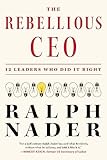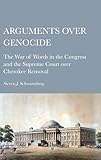Barrack Obama’s headland speech ‘A Moment of Opportunity’ has pledged billions of dollars in aid supporting the recent uprisings referred to as the Arab Spring. Obama pledged continuing aid for Egypt and Tunisia, pledged support for democratic reform Syria, Bahrain and Yemen, signaled out particular criticism Syria’s President Bashar al-Assad, confirmed the imposition of sanctions on al-Assad and six senior officials because of human rights abuses, and called on the world’s financial institutions to underpin the region’s economies.
But he made no mention of powerful American ally Saudi Arabia, which has not escaped the Arab Spring uprisings. One report noted: “Saudi Arabia’s worst nightmare – the arrival of the new Arab awakening of rebellion and insurrection in the kingdom – is now casting its long shadow over the House of Saud. Provoked by the Shia majority uprising in the neighbouring Sunni-dominated island of Bahrain, where protesters are calling for the overthrow of the ruling al-Khalifa family, King Abdullah of Saudi Arabia is widely reported to have told the Bahraini authorities that if they do not crush their Shia revolt, his own forces will.”
When the White House backed the uprisings beginning with the fall from power of Egyptian President Hosni Mubarak, another long-time U.S. ally, Saudi Arabia might have been worried about what Obama’s 19 May (2011) speech might have contained. They need not have.
The relationship between the U.S and Saudi Arabia is a long and complex one. The public attention that the Arab Spring uprisings brings to Saudi Arabia has the potential to drive a wedge between the two countries. Attention to the Saudi-American relationship tends to focus on the idea that America is Saudi’s protector in the region. This is an idea rejected by the House of Saud. But it was only in 1990, when Iraq’s Saddam Hussein invaded Kuwait that the Saudis turned to the U.S. military for protection. Iran is considered as an enemy state by both the US and Saudi Arabia. Saudi Arabian concern about U.S. policy in the Middle East is deep-seated, dating to the 2003 U.S. invasion of Iraq, which brought into being the first Shiite-led Arab nation in modern history. In Lebanon, Washington has not been able to stop Iranian-backed Hezbollah from steadily expanding its political clout.
Recent events are also ominous. The Saudis, armed with the best U.S. military technology, are claiming themselves as guardians of the Arab status quo. They have made it clear that they will not accept popular rule anywhere in the states under the Council for the Arab States of the Gulf.
It is the status quo (including American support) that is the very thing the Arab Spring protesters want to overthrow. Moreover, America has steadily become wedged itself, accounting for its slow official response to the events that have been occurring in Northern Africa and the Middle East since December 2010.
Successive American administrations have not as been as strident on human rights abuses in Saudi Arabia as they have been elsewhere. This is the trade off for having Saudi Arabia as an American sphere of influence in the region. Now with the protestors demanding reform, a rejection of regimes backed by outside states for geo-political self-interests, and the delivery of human rights, America is itself wedged and the Saudi’s have been worried about why Barrack Obama might do.
Associated Press has reported that there is a “deepening political divide” between the Obama administration and the rule of King Abdullah bin Abdul-Aziz. Privately however the U.S. and the Saudi Arabia are quietly expanding defense ties on a vast scale, led by a little-known project to develop an elite force to protect the kingdom’s oil riches and future nuclear sites. The U.S. also is in discussions with Saudi Arabia to create an air and missile defense system with far greater capability against the regional rival the Saudis fear most, Iran.
Britain’s Amnesty International had already issued a press release ahead saying Obama needed to make it clear that his administration is “committed to promoting freedom, justice and accountability with friend and foe alike”. This seems problematic given the Saudi government ranks low on The Economist’s Democracy Index.
For a president elected on a platform of change, and with a speech embracing opportunity, Obama’s silence on Saudi Arabia is deafening.










